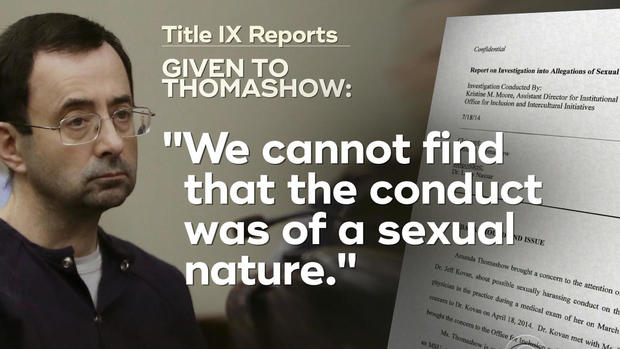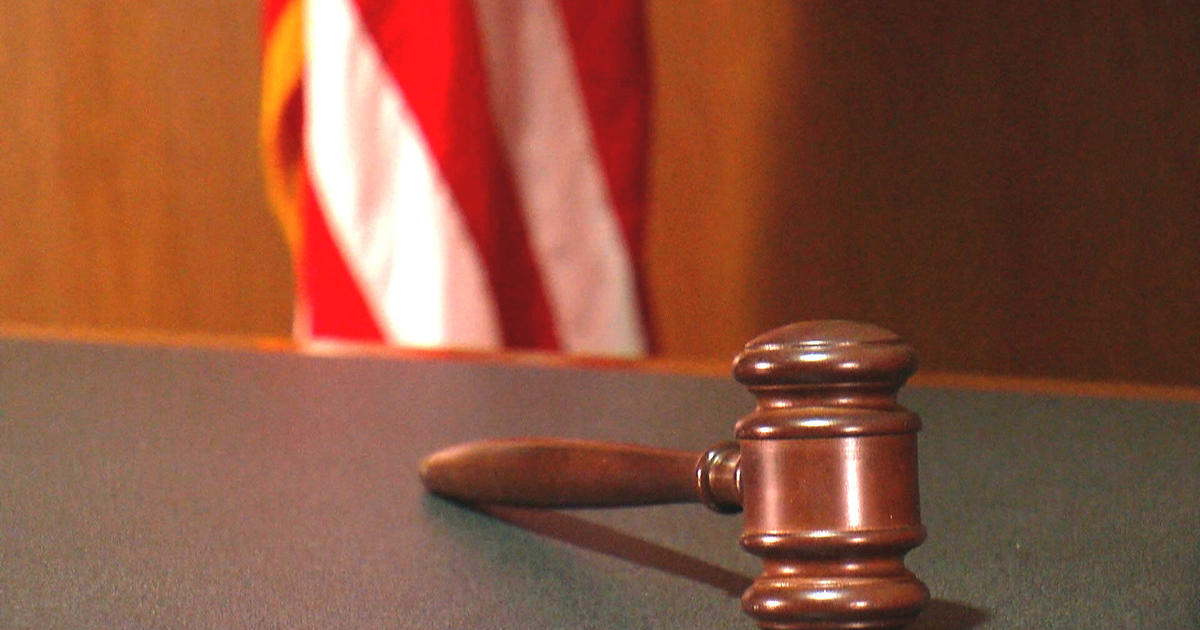Complaints about Larry Nassar raise questions about MSU
There was more fallout Friday from the sex abuse scandal involving Larry Nassar. The former USA Gymnastics doctor was sentenced this week to decades in prison for molesting young girls. On Friday, that group's directors agreed to resign, and Mark Hollis said he's retiring as athletic director at Michigan State University.
But Nassar treated athletes there for nearly two decades, and there are serious questions about how the university responded to complaints about Nassar.
Amanda Thomashow was one of the 156 women who confronted Nassar last week.
"I didn't know who to tell and I was scared no one would believe me. Sometimes I even had a hard time believing myself. But in the end, I knew I had to report it," she said.
In 2014, Thomashow complained to Michigan State University that she had been sexually abused by Nassar. The university conducted a sexual harassment investigation and cleared him. The report given to Thomashow concluded: "we cannot find that the conduct was of a sexual nature." But it said her claim was "helpful in that it allows us to examine certain practices" at Michigan State University.
- Former Team USA gymnasts describe doctor's alleged sexual abuse
- Olympic gymnast Aly Raisman confronts Larry Nassar in court
A different, more detailed conclusion was sent to Nassar and his boss at Michigan State. Unknown to Thomashow, the report found "significant problems that the practice will want to address." Those problems included "exposing patients to unnecessary trauma based on the possibility of perceived inappropriate sexual misconduct," and "the failure to obtain consent."
The report also recommended a chaperone during a "sensitive procedure."
"Larry Nassar was cleared to practice again under new guidelines that weren't actually enforced," said Thomashow.
A 2017 Michigan State University police investigation stated at least 12 assaults were reported after Nassar was cleared in 2014. Many of them were at MSU and involved "the lack of a chaperone during sensitive procedures and un-gloved skin-to-skin contact."
In a statement, Thomashow told CBS News she felt anger and betrayed that her university concealed critically important information from her.
Michigan State University told CBS News it was standard practice to have an internal version of a report when no violation of their sexual harassment policy had been found. They added she was told the investigation had led to policy changes.





